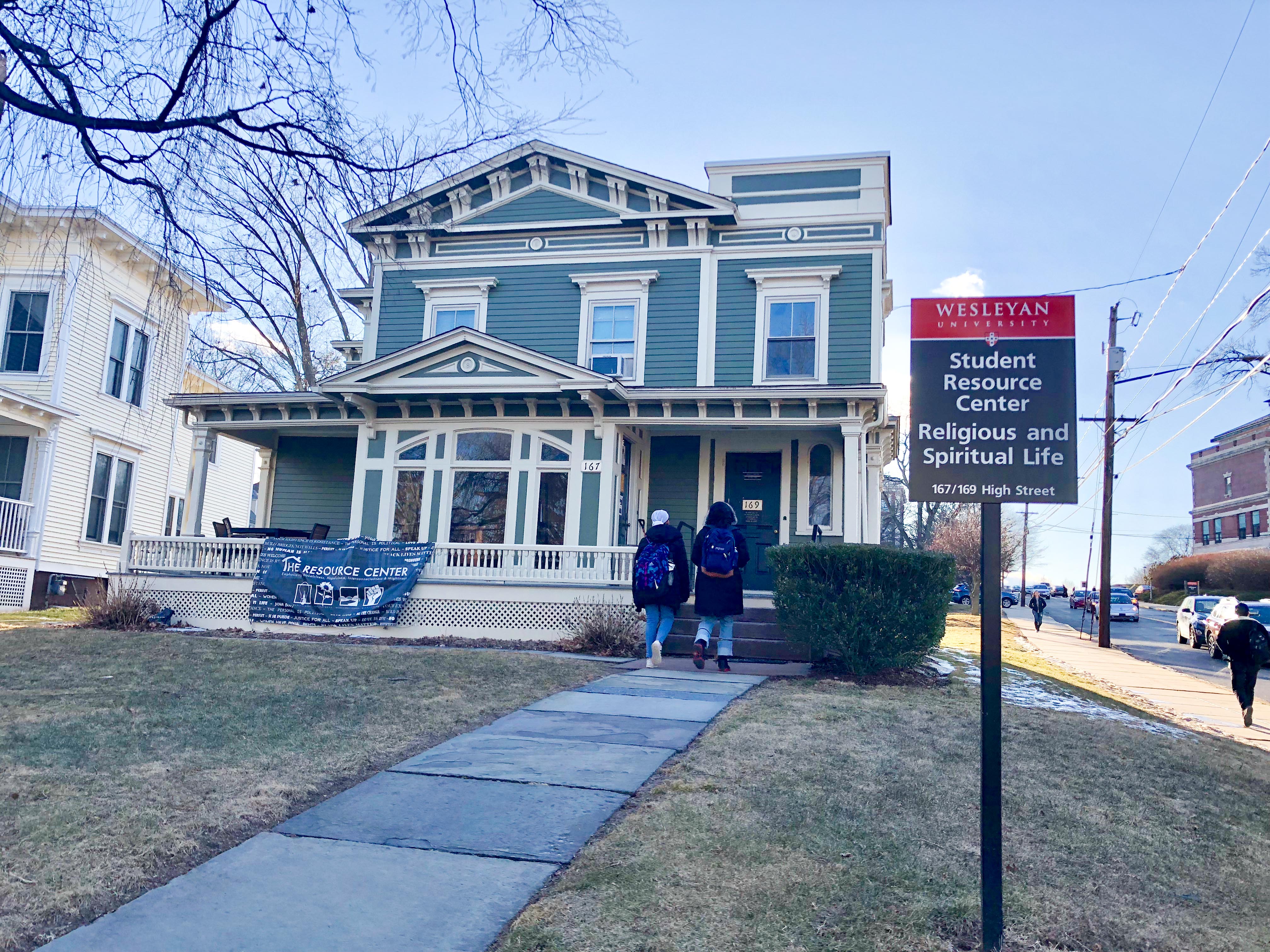
Ava Nederlander, Photo Editor
Although the idea for an environmental justice collective has been circulating around campus for over a year, the first-ever meeting for the Wesleyan Climate Congress (WCC) took place at the Resource Center this past Sunday, Nov. 10. Students from various campus groups gathered to discuss the potential role of the WCC in facilitating campus activism and sustainability efforts, and how student groups within the WCC could work with each other.
The discussion was facilitated by Director of the Resource Center Demetrius Colvin. While no individual group led the meeting, Climate Action Group (CAG) member Ernest Braun ’22 advertised the meeting on Facebook a few days prior.
“The WCC is inspired by the intersection of climate justice with other movements, identities, and causes, but that doesn’t mean that environmentalism has to be at the center of an organization’s mission in order to participate: in fact, the point of the WCC is to broaden the scope of environmental activism to encompass every aspect of society and to contribute support to other movements,” Braun wrote in the Facebook post. “This is about intersectionality. Representatives from ANY student group or organization are encouraged to attend the first meeting.”
The meeting began with students introducing themselves and the group that they belong to. There were 20 or so students in attendance, representing student groups such as CAG, WesDivest, WesDems, the Green Fund, Sunrise Movement, and Invisible Men. Each person was also asked to discuss their relationship with the environment and the impacts of climate in their lives.
“From when I was little I had this sort of nagging, frustrating feeling that I knew that climate change was something that was happening right now and was this growing urgent problem, but that all around me, it didn’t really seem like people were thinking about it or talking about it all that much,” CAG member Irene Westfall ’22 said. “Even with that mindset, it took me a long time to look around my own time and see the effects of climate change and realize that there was something kind of messed up in the fact that the river next to my town was so polluted, and that every couple of years we would have to stop drinking the water from the water fountains in my school because something would break.”
The meeting then moved into a brainstorming session, where attendees voiced their ideas concerning how the WCC would play a role in future activism, and attempted to determine some common goals. Since each student group has different interests and priorities, it seemed unclear what future roles the WCC would play in sustainability efforts on campus. Some students desired to prioritize practical measures for more sustainable living on campus through addressing issues like littering and waste, while others wanted to tackle broader institutional issues like divestment. Others still wanted to get involved in Middletown sustainability efforts, or focus on political action and the 2020 election to support governmental efforts towards sustainability.
Students also questioned whether the WCC should function as either an umbrella organization with a cohesive and clear set of values, or as a forum for communication among activist groups. Colvin addressed this concern, emphasizing the idea that these conceptions of the WCC are not mutually exclusive.
“The idea I want to give us is that of simultaneity,” Colvin said. “We all have different frames of reference…. We have so much at all different times to think about…. I think, to me, the goal of this group can be [to figure out] how we can share that burden so we don’t feel like we have to be all things to all levels of scale at every time. But that also requires us to have a commitment to each other in this space.”
Some suggested that this commitment should take the form of event sharing and encouraging members of each group to attend other groups’ initiatives. But others were concerned that this would be an additional and unfeasible obligation that may force students to endorse other WCC groups whose missions they may not agree with.
“Some of us here are simply not interested in what other groups are doing,” WesDems and Wesleyan Democratic Socialists (WesDS) representative Bryan Chong ’21 said. “I think it’s a little bit more complicated than ‘Oh, we should get each other to go to other people’s events more’ because I think it is a very difficult thing for Wesleyan students to do because we are all so involved in our own things and dedicating time to our own things.”
As the meeting drew to a close, some attendees suggested that the WCC should not subscribe to any one mission and instead act as a forum for people to communicate.
“I would hope that this group doesn’t become another group and instead a collaborative network because I don’t think Wesleyan needs another sustainable, environmental group, in that way,” Green Fund Secretary Phoebe Landsman ’21 said. “We’re all tackling things that are important to us. Each of us can’t tackle every single issue, so I think it’s good we have our focuses and using this as a platform.”
Attendees agreed that this network would be less of a group, and more of a platform for sustainability groups to share initiatives, resources, and opportunities as well as make connections with other groups on campus. One member even remarked that Wesleyan Climate Congress should possibly be renamed to steer away from “group” language. Attendees’ suggestions included names like “Environmental Justice Network,” “Wesleyan Action Network,” and “The Justice League.”
Regardless of its future name, attendees agreed that these meetings should continue on a regular basis to establish the purpose and role of this new network. The next meeting is scheduled for Sunday, Nov. 24, at 4 p.m.
Hannah Docter-Loeb can be reached at hdocterloeb@wesleyan.edu.
Comments are closed